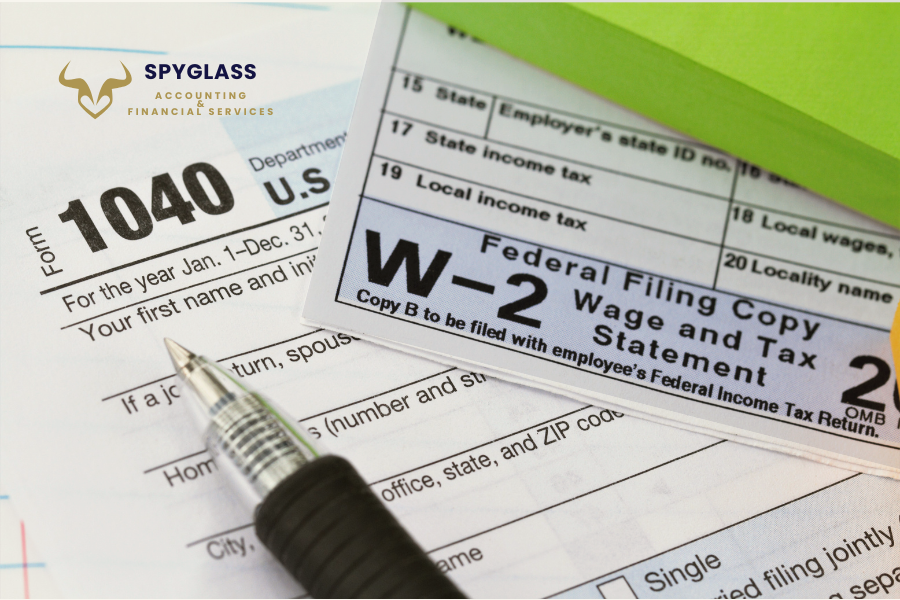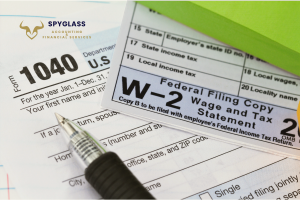Tax Preparation Checklist for Small Business Owners
Tax season can feel like a maze for small business owners, but with a solid Tax Preparation Checklist, you can navigate it with confidence. Staying organized year-round not only reduces stress but also helps you maximize deductions and avoid costly mistakes. Here’s your ultimate guide to preparing your small business taxes for 2025.
Why a Tax Preparation Checklist is a Game-Changer
Tax preparation doesn’t have to be overwhelming. A well-crafted Tax Preparation Checklist ensures you stay on top of deadlines, gather the right documents, and claim every deduction you’re entitled to. Here’s how it helps:
- Minimize Errors: Avoid mistakes that could trigger IRS audits.
- Maximize Deductions: Claim all eligible expenses and credits.
- Stay Compliant: Meet federal and state tax obligations without penalties.
- Save Time: Streamline the filing process with organized records.
Key Documents for Your Tax Preparation Checklist
Before diving into tax filing, gather these essential documents to ensure a smooth process:
1. Business Identification & Financial Records
- Employer Identification Number (EIN) or Social Security Number (SSN) for sole proprietors.
- Previous year’s tax returns (keep them for at least three years).
- Profit and Loss Statement and Balance Sheet.
- Bank statements, credit card statements, and deposit slips.
2. Income Documentation
- Invoices issued to clients and sales records.
- Form 1099-NEC for non-employee compensation.
- Form 1099-MISC for rental income or attorney payments.
3. Expense Records
- Receipts for office supplies, equipment, and recurring operational costs.
- Employee payroll records, including W-2s and 1099s.
- Business travel and mileage logs.
- Rent, utilities, and insurance premium payments.
4. Tax Forms
- Schedule C (for sole proprietors) with Form 1040.
- Form 1120 (for C corporations) or Form 1120-S (for S corporations).
- Form 1065 (for partnerships) with Schedule K-1 for each partner.
- Form 720 for excise taxes, if applicable.
Types of Taxes to Include in Your Tax Preparation Checklist
Understanding the taxes your business owes is critical. Here’s a breakdown of the most common types:
1. Income Taxes
- C Corporations: Pay taxes at the corporate level (21% federal rate) and again on shareholder dividends.
- Pass-Through Entities (sole proprietorships, partnerships, S corporations): Profits are taxed on owners’ personal returns.
2. Estimated Taxes
- Pay quarterly if you expect to owe more than $500.
- Deadlines for 2025:
- January 15, April 15, June 16, September 15, and January 15, 2026.
3. Self-Employment Taxes
- Sole proprietors and partners pay 15.3% (12.4% for Social Security and 2.9% for Medicare).
4. Employment Taxes
- Withhold Social Security, Medicare, and income taxes for employees.
- Pay federal unemployment tax (FUTA) and state unemployment taxes.
5. Sales and Excise Taxes
- Collect and remit sales tax if your state requires it.
- Pay excise taxes on specific goods or services (e.g., fuel, transportation).
Maximizing Deductions with Your Tax Preparation Checklist
Don’t leave money on the table! Here are some key deductions to include in your Tax Preparation Checklist:
1. Home Office Deduction
- Calculate the percentage of your home used for business.
- Deduct mortgage interest, rent, utilities, and insurance.
2. Vehicle and Mileage Expenses
- Track business-related mileage and car expenses.
3. Employee Salaries and Benefits
- Deduct wages, bonuses, health insurance, and retirement contributions.
4. Marketing and Advertising Costs
- Include expenses for social media ads, website development, and promotional materials.
5. Professional Services
- Deduct fees for accountants, lawyers, and consultants.
6. Industry-Specific Credits
- Explore credits like the Small Employer Health Insurance Premiums Credit or Work Opportunity Credit.
Tax Filing Deadlines to Add to Your Tax Preparation
Missing deadlines can lead to penalties. Here are the key dates for 2025:
- January 31: Send W-2s to employees and 1099s to contractors.
- March 15: File returns for partnerships, S corporations, and multi-member LLCs.
- April 15: File returns for sole proprietors, single-member LLCs, and C corporations.
- Quarterly Estimated Taxes: Due April 15, June 16, September 15, and January 15, 2026.
Tips to Simplify Your Tax
- Stay Organized Year-Round: Use accounting software like QuickBooks to track income and expenses.
- Set Aside Funds for Taxes: Save a portion of earnings to cover tax payments.
- Leverage Technology: Tools like Intuit Assist can automate categorization and suggest deductions.
- Request an Extension if Needed: Use Form 7004 for a six-month filing extension (but pay estimated taxes on time).
- Consult a Tax Professional: Experts like Spyglass Accounting can ensure accuracy and compliance.
Final Thoughts
A proactive approach to tax preparation saves time, money, and stress. By following a detailed Tax Preparation Checklist, you can tackle tax season with confidence and focus on growing your business. For personalized guidance, consider partnering with professionals like Spyglass Accounting to streamline your tax process and maximize your savings.

